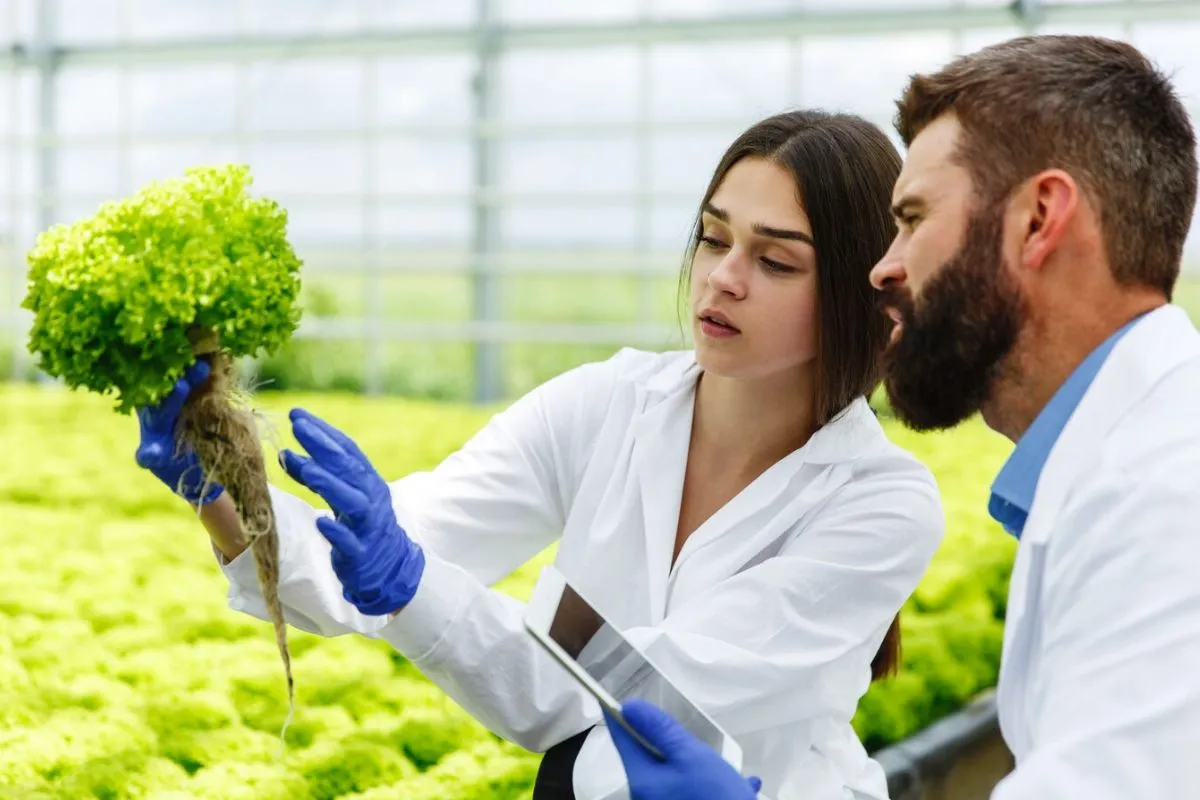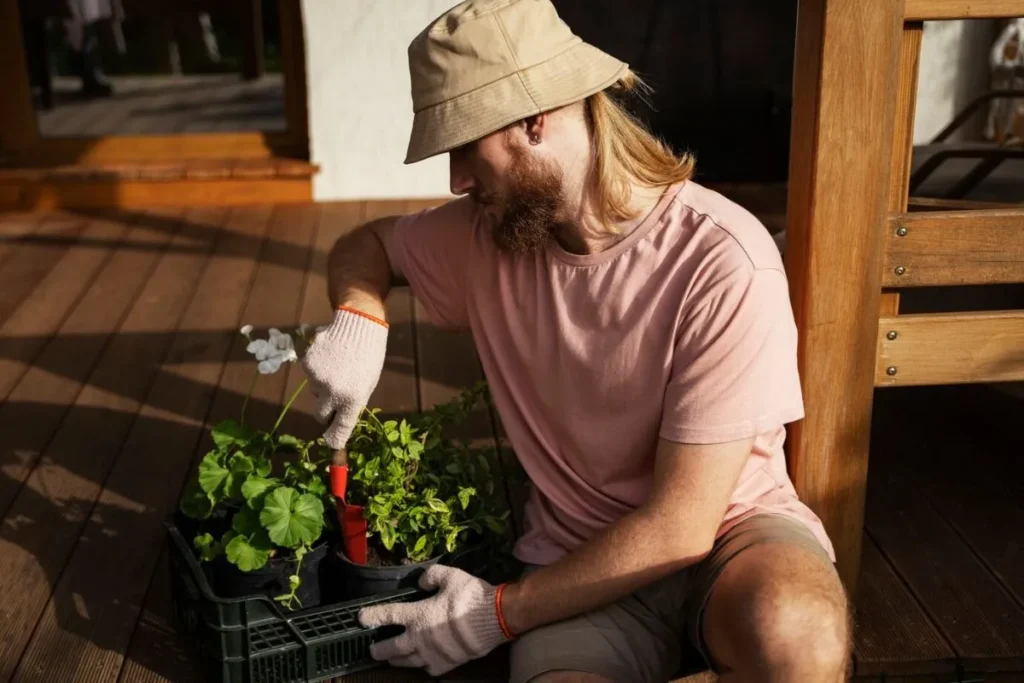Developing Closed-Loop Systems for Plant-Based Food Production is revolutionizing agricultural practices.
These systems aim to create sustainable, eco-friendly food production models. By minimizing waste, they promote a circular economy within agriculture.
Understanding Closed-Loop Systems
Closed-loop systems are designed to reuse resources within a production cycle. They help maintain ecosystem balance by recycling waste into valuable resources. This process reduces dependence on external inputs.
In plant-based food production, these systems create highly efficient agricultural models. Innovations in this area support sustainability and self-sufficiency. Farmers can drastically reduce their environmental footprint.
Closed-loop systems incorporate elements of a circular economy. Waste products are recycled, turning by-products into inputs. This approach is quite beneficial in reducing greenhouse gas emissions.
Techniques for Developing Closed-Loop Systems
Composting and Vermiculture
Composting transforms organic waste into nutrient-rich soil. It’s a simple yet effective method in closed-loop agriculture systems. Vermiculture involves using worms to decompose organic waste, speeding up the process.
This technique provides plants with essential nutrients naturally. It reduces the need for synthetic fertilizers. Farmers can cut costs and improve soil health.
Both methods contribute to sustainability in agriculture. They help create a more resilient and fertile farming ecosystem. This enhances overall plant growth and productivity.
Hydroponics and Aquaponics
Hydroponics is a soil-less farming method that uses nutrient-rich water. It enables year-round plant growth in controlled environments. Aquaponics combines hydroponics with aquaculture, growing plants and fish together.
In these systems, fish waste provides nutrients for plants. Plants, in turn, filter and clean the water. This creates a mutually beneficial and sustainable ecosystem.
Hydroponics and aquaponics are highly efficient. They use less water compared to traditional farming. Additionally, they produce higher yields of plant-based food.
Biogas Production
Biogas is produced by the anaerobic digestion of organic matter. This process breaks down waste into biogas and digestate. Biogas can be used as an energy source for farm operations.
Digestate, rich in nutrients, can be used as a biofertilizer. This helps close the nutrient loop in plant-based food production. It also reduces waste disposal issues.
Biogas production supports energy self-sufficiency. It enables farms to produce their own energy sustainably. This reduces dependency on fossil fuels.
Examples of Closed-Loop Systems in Practice
Vertical Farming
Vertical farming involves growing crops in stacked layers. This method is highly efficient and uses less land. It often combines hydroponics or aquaponics methods.
Vertical farms can be established in urban areas. This reduces transportation distances and emissions. It also provides fresh produce to local communities.
Such farms are self-contained and energy-efficient. They exemplify the concept of closed-loop food production. Vertical farming is a growing trend in sustainable agriculture.
Community-Supported Agriculture (CSA)
CSA systems connect consumers directly with local farmers. Consumers purchase shares of the farm’s output. This supports farmers financially and ensures food self-sufficiency.
CSAs often implement closed-loop practices. They focus on organic farming and composting. This enhances soil health and reduces agricultural waste.
These systems promote sustainable food consumption. They foster a stronger connection between people and their food sources. CSAs contribute to a sustainable agricultural ecosystem.
Regenerative Agriculture
Regenerative agriculture aims to restore and enhance soil health. It involves techniques like no-till farming and cover cropping. These practices protect and enrich the soil.
Regenerative methods often include composting and grazing management. These contribute to closed-loop nutrient cycles. Practices focus on reversing climate change by improving soil carbon capture.
This approach fosters a more resilient agricultural system. It supports higher productivity and biodiversity. Regenerative agriculture is integral to sustainable food production.
Challenges and Innovations in Closed-Loop Systems
Implementing closed-loop systems presents several challenges. Initial setup costs can be high. There’s also a need for education and training in new techniques. Additionally, ongoing maintenance and monitoring require a dedicated workforce, which can be resource-intensive.
However, innovation in technology is driving progress. Developments in IoT and AI enable smarter farm management. Such advancements reduce labor and increase efficiency. Furthermore, real-time data analytics help optimize resource use, ensuring that farms operate at peak efficiency.
Moreover, government incentives support sustainable practices. Grants and subsidies make closed-loop systems more accessible. This spurs broader adoption in the agricultural sector. Regulatory frameworks are also evolving to support these systems, making it easier for farmers to implement sustainable practices.
Educational initiatives and community programs can also play a crucial role. By providing training and resources, these programs help farmers transition to closed-loop systems smoothly. Collaboration with universities and research institutions can drive further innovation and adoption.
The Future of Plant-Based Food Production
Closed-loop systems represent the future of sustainable agriculture. They integrate advanced technologies and traditional farming practices. This creates highly efficient food production models.
Emerging techniques and innovations will further enhance these systems. The focus will be on increasing productivity while minimizing environmental impact. Sustainable practices will become mainstream in plant-based food production.
These systems align with global sustainability goals. They support food security and environmental conservation. Closed-loop agriculture is essential for a sustainable future.
Your Path to Sustainable Agriculture
Developing Closed-Loop Systems for Plant-Based Food Production is key to future agriculture. These systems foster sustainability and efficiency. They integrate advanced technologies with eco-friendly practices.
By reducing waste and maximizing resource use, closed-loop systems enhance productivity and promote environmental stewardship.
As you explore these strategies, consider implementing them in your context. Embracing closed-loop systems can lead to significant environmental and economic benefits.
Stay updated on innovations and make strides towards sustainable farming. Investing in research and development can further refine these systems, making them more accessible and effective.
Ready to take the next step? Engage with agricultural communities focused on sustainability. Share your experiences and learn from others. Together, we can cultivate a greener future.
Participation in workshops and conferences can provide valuable insights and networking opportunities, accelerating your journey towards sustainable agriculture.
Frequently Asked Questions
What is a closed-loop system in agriculture?
A closed-loop system reuses resources within the farming cycle, recycling waste into inputs to minimize external dependencies and environmental impact.
How do closed-loop systems promote sustainability?
They reduce waste, conserve resources, and lower greenhouse gas emissions, fostering a more sustainable and resilient agricultural ecosystem.
What are some examples of closed-loop techniques?
Examples include composting, vermiculture, hydroponics, aquaponics, and biogas production, all of which recycle waste into useful resources.
Why is vertical farming considered a closed-loop system?
It efficiently uses space and integrates hydroponic or aquaponic methods, making it a self-contained system that reduces resource consumption and waste.
What role does technology play in closed-loop agriculture?
Technological innovations like IoT and AI enhance farm management, increasing efficiency and enabling more sustainable farming practices.



